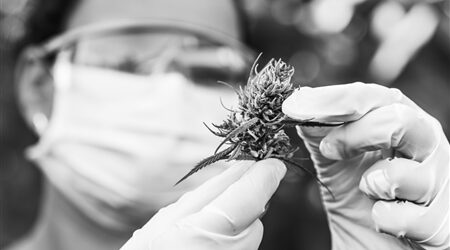Opinions expressed are solely those of the author and do not reflect the views of Rolling Stone editors or publishers.
When I started working in cannabis 20 years ago, we were a scrappy group of activists, doctors, patients, growers and policy wonks all out to free the plant. The requirements for the job were a love of the plant and a history of consumption.
As dispensaries started to form and become businesses, the work chart, from bottom to top, was made up of people who loved the plant first and learned the responsibilities of their jobs second. Because the activity was only quasi-legal, trust was a non-negotiable in those you worked with, and job qualifications were often overshadowed by the length of a friendship.
Of course, on the other side, people from “straight” industries like accounting and marketing were reluctant to enter the cannabis world, even if they were consumers, because of the stigma and legal risk associated with being a part of the commercial supply chain. One of the most interesting industry trends post-legalization is not related to who is buying or consuming cannabis, but rather who is working in it. The retail and service industries, for instance, are seeing workers from the line to the boardroom leaving in pursuit of the green dream.
I have met many of these folks in the past decade. While I am thrilled to see top talent from allied industries bring those skills to our newly forming and very fragile workforce, I find that even those from the most regulated of industries still have a steep learning curve when it comes to making the move into cannabis. So, I present to you three tips for those making the move into the cannabis industry from somewhere else.
1. Understand the distinctions of this regulated industry.
You may know regulated industries, but not like this. I have spoken to dozens of former alcohol executives who have made their way into cannabis, thinking that their experience in another highly regulated industry would have prepared them. They were wrong.
While alcohol is also highly regulated, the industry has had enough time for a healthy push and pull around how to best achieve safety. The driving age used to vary from state to state. Research shows that minimum drinking age laws of 21 years old resulted in reduced drinking-and-driving and drinking-related crashes. The regulations changed to adapt for this, making the drinking age uniformly 21 years old (although there is still debate on whether a uniform age of 18 might be better).
Because the cannabis industry is still in its infancy, rules about packaging, sales, advertising and other public health and safety issues are still plagued by antiquated ideas and illogical attempts to “control” the product out in the world. This can be maddening to someone who is used to seeing rational and evidence-informed justifications for regulatory business expenses. In cannabis, the rules around packaging, labeling and advertising are in constant flux, making financial and operational strategies consistently uncertain.
My advice? Get used to it. I know that sounds harsh, but this is the stage of development we are in. However, those who come to cannabis from other highly regulated industries should also bring with them the knowledge, research and experience of navigating constrictive waters.
The Rolling Stone Culture Council is an invitation-only community for Influencers, Innovators and Creatives. Do I qualify?
2. While you don’t have to consume cannabis to be in this industry, you have to know the plant.
There was a time when every single person you encountered in the cannabis space was a consumer, and oftentimes, not just a consumer, but an aficionado. Now, while we don’t require everyone to break out their personal dab rig at every conference, if you are going to work on behalf of this plant, you should put in the work to better understand cannabis itself.
There is no shortage of online opportunities to learn about the cannabis plant. From Oaksterdam, an education program self-recognized as one of the first cannabis “colleges,” to Ganjier’s Cannabis Sommelier Certification Program, taking time to learn about the cannabis plant will help you understand the market and pay respect to the industry. (Full disclosure: Author is on the Ganjier Council and an instructor for the program.) Having a relationship with the plant, consumption or not, will strengthen how you relate to the industry and consumer in every way.
3. Recognize that cannabis marketing is unique.
Many people come to cannabis from industries like alcohol and tobacco, where they are used to selling a vice, something that could be potentially harmful to the consumer and society, but is tolerated. In our quest to liken cannabis to alcohol for regulatory and de-stigmatizing purposes, we have suggested to society that it is a vice, which in my opinion is untrue. Professionals in the industry regard the cannabis plant as an entheogen or a psychoactive substance used for various purposes.
While other industries might be accustomed to using marketing to overshadow and downplay the potential negative consequences of using their product, cannabis is prevented from speaking the truth about its benefits. When you work in cannabis, you are a champion for the truth about the plant, not an active participant in the vice-driven strategy of consumption despite risks.
The fact that people from other industries are drawn to cannabis is wonderful. For too long, many of us were thrown into roles that we were not trained to do, but it was all hands on deck. Having more sets of hands is the way we will move this industry forward. But, thinking that the skills learned elsewhere and the values that come with other sectors will transfer 100% into the cannabis space is just not true. It takes time and dedication to become a successful and effective cannabis professional, but, in my opinion, the cause and the plant are absolutely worth it.
Source: Read Full Article


